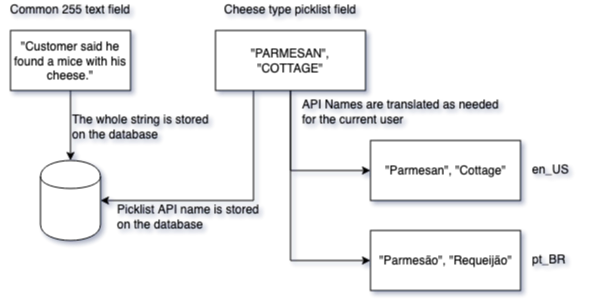This is what I think isthought was the reason for the LIKE operator to automatically translate picklist values, and that has been confirmed on the documentation since Spring '21: The LIKE operator is used to match strings. The picklist value is translated, probably because of situations when the end-user searches for text in his own language.
Consider the following situation: a custom search component for a multinational company that supports many languages. The requirement is to enable search in picklist values that are being added/deactivated every month or so. If the user wants to search for a string, he won't type the API name of the field, but the translated version of the value he wants to get.

